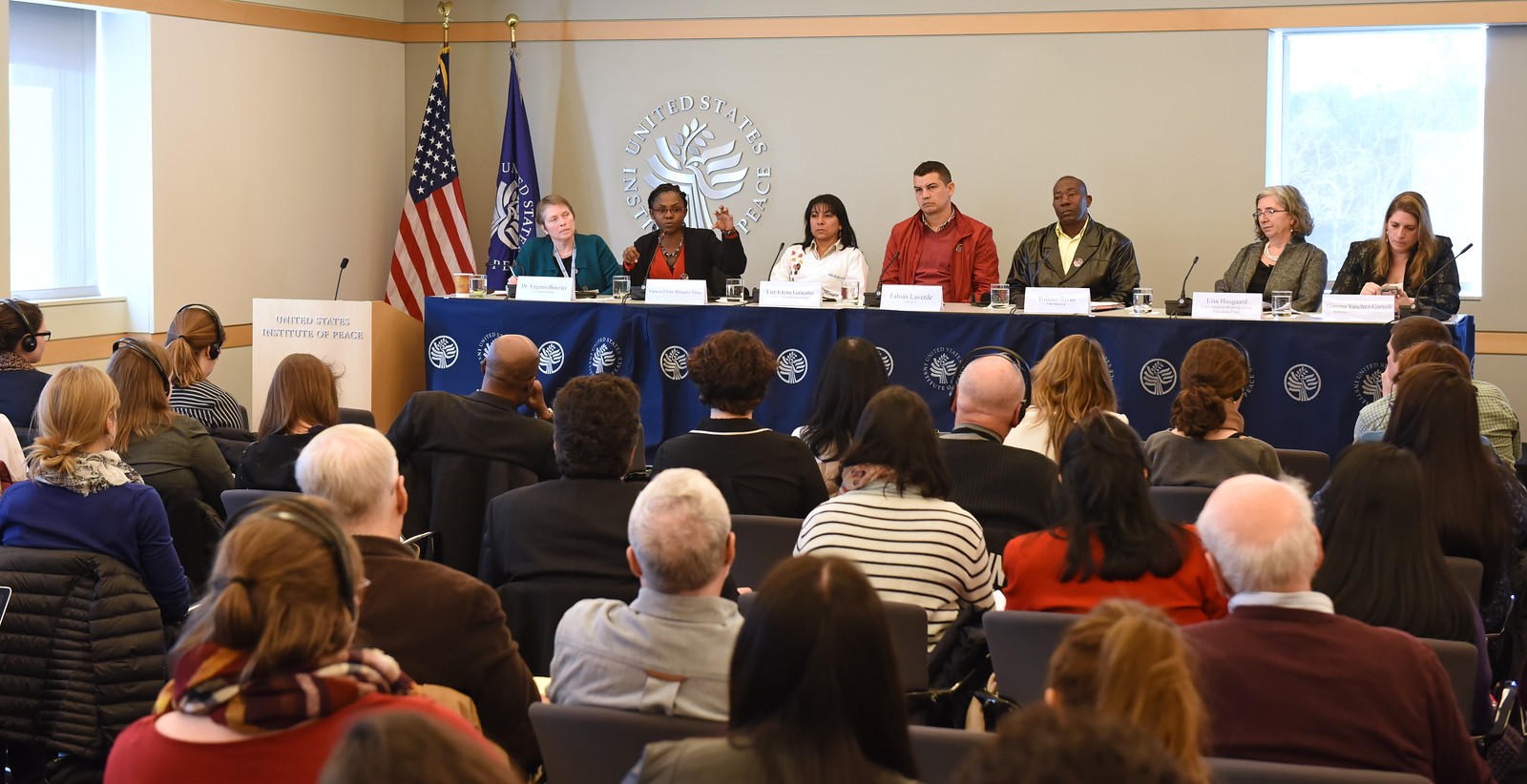Colombia: Human Rights Defenders Building Sustainable Peace
Despite widespread optimism that a peace agreement will soon be reached in Havana, the war in Colombia continues, marked by a rise in attacks on human rights defenders. The U.S. Institute of Peace and its co-sponsors held an event to hear four winners of last year’s National Prize for the Defense of Human Rights in Colombia discuss the challenges they and their fellow advocates face in their regions, and the role of human rights defenders in building sustainable peace in Colombia.

For the past four years, international humanitarian agencies working in Colombia have sponsored this competitive national prize to acknowledge the courageous work of individuals and of local and regional organizations that work to protect and promote human rights in the country. Four of last year’s five recipients were on hand for the discussion, courtesy of the Swedish humanitarian agency Diakonia, which has sponsored their visit to the U.S. The four represent peasant, Afro-Colombian and women’s organizations, and hail from northern Cauca, Comuna 13 (Medellín), Casanare and the Middle Atrato.
The discussion was co-sponsored by the Washington Office on Latin America and the Latin America Working Group Education Fund. The conversation continued on Twitter with #ColombiaPeaceForum.
Speakers
Francia Elena Márquez Mina, Speaker
Winner, Defender of the Year, Proceso de Comunidades Negras (PCN) and Consejo Nacional de Paz Afrocolombiano (CONPA)
Luz Elena Galeano, Speaker
Winner, Social Collective Process of the Year, Mujeres Caminando por la Verdad
Fabián Laverde, Speaker
Winner, Collective Process of the Year, NGO Level, Corporación Social para la Asesoría y Capacitación Comunitaria (COS-PACC)
William Rivas, Speaker
Winner, Recognition, “Lifetime” Organization, El Consejo Comunitario Mayor de la Asociación Campesina Integral de Atrato (COCOMACIA); El Foro Interétnico Solidaridad Chocó, FISCH
Lisa Haugaard, Commentator
Executive Director, Latin America Working Group Education Fund
Gimena Sánchez, Commentator
Senior Associate for the Andes, Washington Office on Latin America
Virginia M. Bouvier, Moderator
Senior Advisor for Peace Processes, U.S. Institute of Peace


